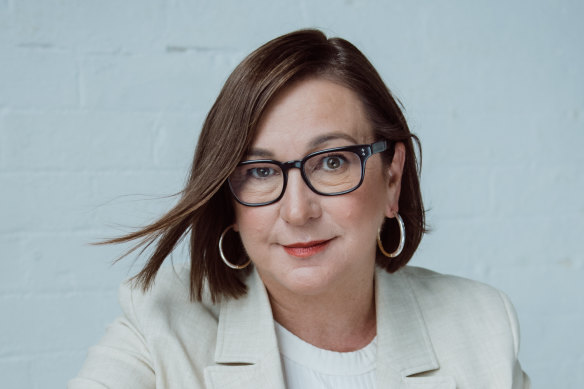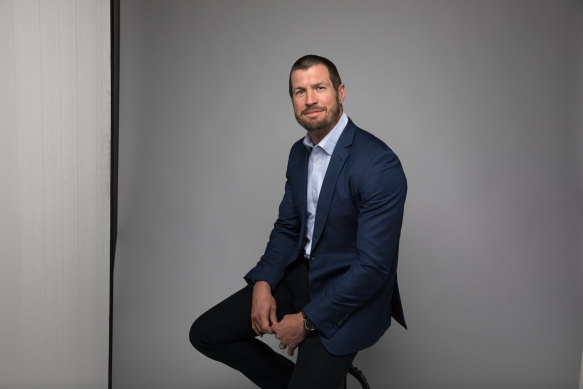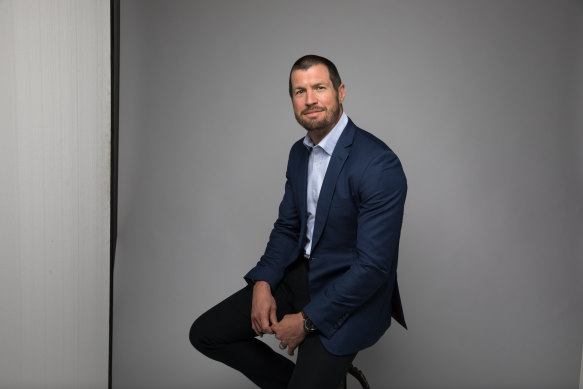The Guardian will stop accepting gambling advertising across all its channels, in a move its local boss says will cost it millions of dollars.
Coming into effect on Thursday, the ad ban applies to all Guardian’s services locally and globally, including the United Kingdom where it continues a print edition.
With the inquiry into online gambling advertising expected to offer its recommendations early next week, Guardian Australia editor Lenore Taylor said: “We’ve been thinking about this at a global level for quite a long time”.

The Guardian Australia’s editor, Lenore Taylor said the timing had nothing to do with the ongoing parliamentary inquiry.Credit: The Guardian
“We’ve done a lot of reporting on gambling harm in the UK and in Australia, so the timing is a result of the outcome of those quite lengthy conversations,” she said.
The gambling sector contributed $310 million of the reported $9 billion spent on advertising in 2022, and this decision is set to cost The Guardian “multi-millions”, according to its outgoing managing director, Dan Stinton.
“I won’t go into the specifics, but wagering advertising has grown really massively for us over the last few years, and that is the reason why we have become more uncomfortable with this, because it has felt like it is not in alignment with our editorial values or our journalism values,” he said.
“But in making this decision, we are effectively turning off one of our largest advertising categories, and our fastest growing one, and the impact is in the multi-millions.”
Stinton did not confirm the exact figure The Guardian is foregoing with the decision.
While Stinton admitted the loss in revenue would be painful in the short term, increased trust in the brand from its audience would be a longer-term gain.
“From an advertising point of view, the reason the vast majority of our clients advertise on The Guardian is because they want to align themselves with a masthead which is incredibly trusted by our audience.”

Outgoing Guardian Australia managing director Dan Stinton said despite short-term pain, the decision will improve trust with its readers.Credit: The Guardian
“As a result of that, the vast majority of our other clients and other categories will be able to make the most of that when they advertise on The Guardian.”
Taylor said gambling ads were unpopular with many readers.
“I had more complaints about gambling ads than any other thing,” said Taylor.
Nielsen research shows that gambling and wagering companies spent $310 million on advertising in 2022, making it one of the most reliable sources of income for media companies.
Total advertising in Australia by the gambling sector has progressively risen over the past decade, up from $287.2 in 2021, $271.3 million in 2020 and $89.7 million in 2011.
Most of this is derived from the two largest firms, Sportsbet and Tabcorp, with about 50 per cent spent with the commercial TV networks, Seven, Ten and Nine (the owner of this masthead). New digital players in the market include Ladbrokes, Neds, Bet365 and PointsBet.
Australians lose $25 billion to gambling a year, with higher levels of advertising exposure having a proven link to engagement with the activity.
Research published in March by the Australian Gambling Research Centre, part of the government’s Australian Institute of Family Studies, found almost 80 per cent of Australians say they are being exposed to betting advertising every week.
Among people who gambled, 21 per cent said they were prompted to start betting for the first time after seeing or hearing gambling ads.
In the UK, 52 per cent of people support a ban on gambling advertising, according to a study in April, and English Premier League clubs pledged to ban front-of-shirt gambling sponsors by 2025-26.
In 2020, The Guardian also banned fossil fuel advertising, but Taylor and Stinton insisted the gambling ban is the last.
“It [fossil fuel advertising] felt increasingly out of place, and it was the same with gambling and as this category grew for us, it just felt more and more like it was out of place on The Guardian.”
“At this stage, we’re not planning on making any further changes or bans on any advertising categories,” said Stinton.
Anna Bateson, chief executive of Guardian Media Group, said: “Many people like the occasional bet, but the advent of 24/7 betting apps on smartphones, marketed to the public through billions of pounds and dollars in advertising across all forms of media, has placed high stakes gambling machines in almost every pocket. This creates a greater risk of gambling addiction and financial ruin.
“I want to be clear that we’re not anti-gambling,” said Taylor. “It’s just the pervasive gambling ads that we are turning off on our site.
“We know lots of our readers like having a bet and have no problem with having a bet, but the evidence here coming out in the inquiry, and the evidence in the UK shows that particularly pervasive sports betting ads do contribute to gambling harm. I certainly feel better about participating in that debate and reporting on that debate when we can be 100 per cent sure that we’re not contributing to the problem.”
“So that’s the motivation here,” added Stinton, “is the sports betting casino in your pocket, targeting vulnerable individuals. We want no part in that and that is what fuelled this decision.”
Stinton is set to depart in the coming months after more than five years running the masthead’s Australian operations, which recently celebrated a decade in the market.
The pair would not add further on Stinton’s replacement, as he prepares to move to Seven, Telstra, and Sequoia Capital-backed medical tech platform, Health Engine.
The Business Briefing newsletter delivers major stories, exclusive coverage and expert opinion. Sign up to get it every weekday morning.
